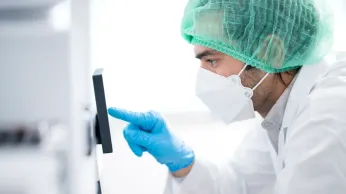
Aug 16
AI Breakthrough: New Antibiotic Designed to Fight Gonorrhea and Skin Infections Offers Hope for Drug-Resistant Cases
READ TIME: 3 MIN.
On August 15, 2025, scientists at the Massachusetts Institute of Technology (MIT) announced a major breakthrough: artificial intelligence (AI) has enabled the creation of two new antibiotics designed from scratch to combat some of the world’s most dangerous drug-resistant infections, including gonorrhea and methicillin-resistant Staphylococcus aureus (MRSA) . This advance, detailed in the scientific journal *Cell*, was spearheaded by Professor James Collins and builds on years of collaborative work between AI specialists and microbiologists .
Antimicrobial resistance (AMR) poses a growing threat, with nearly 5 million deaths each year linked to infections that are no longer treatable with existing antibiotics . Gonorrhea, in particular, is a sexually transmitted infection (STI) that has become increasingly difficult to treat, especially in marginalized communities, including gay, bisexual, and transgender people who often face barriers to healthcare access and higher rates of STIs due to systemic discrimination . MRSA, a skin infection notorious for its resistance to common treatments, is another urgent concern, especially for people living with HIV or those who are immunocompromised.
Using generative AI models, the MIT team designed more than 36 million possible drug compounds, screening them computationally for their ability to kill bacteria. Two lead candidates emerged: NG1, effective against multidrug-resistant gonorrhea, and DN1, which targets MRSA . According to Collins, these molecules are structurally distinct from any current antibiotics and work by disrupting bacterial cell membranes—a mechanism that may help bypass existing resistance .
Traditional antibiotic discovery has slowed dramatically over the past decades, creating a critical gap as bacteria rapidly evolve resistance. The MIT team’s innovative approach—using AI not just to search chemical libraries but to generate entirely new molecules—could revolutionize how medicines are discovered. “Our work shows the power of AI from a drug design standpoint, and enables us to exploit much larger chemical spaces that were previously inaccessible,” said Collins in a statement .
The compounds are now being further developed for clinical testing by Phare Bio, a nonprofit organization co-founded by Collins, which is dedicated to translating scientific discoveries into real-world treatments .
The implications of this breakthrough are especially important for LGBTQ+ communities. Gonorrhea has disproportionately affected gay, bisexual, and other men who have sex with men, with rates several times higher than in the general population . Transgender people, who already face significant health disparities and stigma, are also at increased risk for untreated or undertreated infections due to barriers in accessing affirming care.
Drug-resistant infections present a double burden: not only are they harder to treat, but the stigma surrounding STIs can make it more difficult for LGBTQ+ individuals to seek timely medical attention. The advent of new treatments, especially those that can outpace resistance, could help reduce both the medical and social impacts of these infections within LGBTQ+ communities.
LGBTQ+ health advocates have long called for greater investment in STI prevention, treatment, and research. The use of AI to accelerate drug discovery is a promising example of how technology can help address long-neglected health challenges. “The development of new antibiotics is crucial not only for public health at large but for ensuring LGBTQ+ people have access to the latest, most effective treatments,” said a spokesperson for an LGBTQ+ health coalition .
While the discovery is cause for optimism, experts caution that the new antibiotics are still in early stages of development. Rigorous clinical trials are needed to ensure safety and effectiveness in diverse populations. Moreover, equitable access will be essential to ensure that the benefits of these breakthroughs reach those most in need—including LGBTQ+ individuals, people living with HIV, and communities facing discrimination in healthcare settings.
As research advances, LGBTQ+ organizations and public health advocates will be watching closely to ensure that new treatments are distributed fairly and that health education campaigns are inclusive of all identities and experiences.
This AI-driven discovery represents a bold step forward in the global battle against antibiotic resistance—a fight with life-or-death consequences for millions, and particular resonance for LGBTQ+ communities. As the science progresses from the lab toward the clinic, the hope is that these breakthroughs will not only save lives but also help break down barriers to care and stigma for all.






